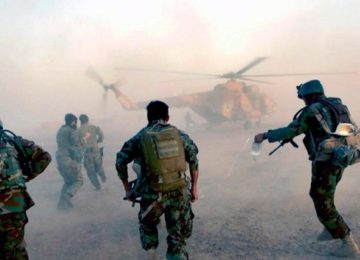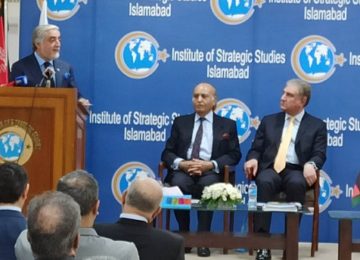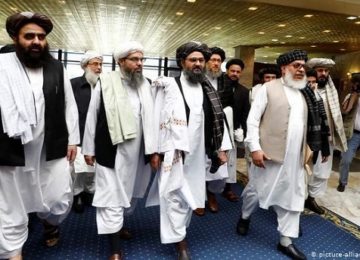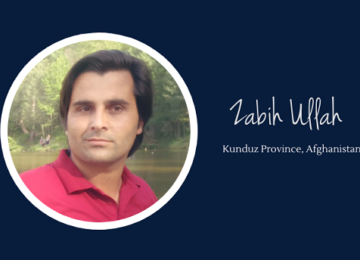President Vladimir Putin’s Russia is not inward looking but very much outward looking, and has clearly shown its intentions to exert in its near abroad. Near abroad is an official terminology used in military, political, and economic doctrines of the Russian state. It refers to the rightful sphere of influence of Russia in the surrounding regions which culturally and politically belonged to the Russian Empire and the Soviet Union. Afghanistan is next to Russia’s near abroad and historically is a country Russians have always tried to control, with certain parts of the Russian state establishment even considering it as an extended near abroad.
In September 2015, a meeting was held between the former leader of the Taliban, Mullah Akhtar Mansoor, and Russian President Vladimir Putin, with the agenda being potential cooperation. Putin unofficially met with Mullah Akhtar Mansur at a military base in Tajikistan, and this meeting received very minimal publicity in the mainstream media. According to some reports, its purpose was to discuss bilateral cooperation in the fight against the Daesh, which is gaining influence in Afghanistan. Since then, Russia has continued expanding contacts with the Taliban in order to achieve the following objectives:
First, by forging ties with the Taliban, Russia reminds the West of the inadmissibility of ignoring Moscow’s interests when discussing plans relating to Afghanistan at the regional and international level. In January 2016, in order to advance the peace process in Afghanistan, a Quadripartite Coordination Group (QCG) was formed, which included the United States, China, Pakistan, and Afghanistan. Four participating countries held meetings concerning negotiations with the Taliban. Russia felt isolated, although the efforts of the QCG ultimately did not lead to success.
Secondly, by supporting the Taliban, the Russian political leadership seeks to strengthen the barriers which halt the spread of US and NATO influence in the region. Since 2001, more than 3,000 US troops have died in Afghanistan fighting against the Taliban and Al Qaeda. In addition to active participation in Middle East diplomatic processes, Moscow also intends to expand its influence beyond Central Asia, including inside Afghanistan and Pakistan.
Thirdly, Russia feels the threat posed by the influence of Daesh in Afghanistan. Since 2014, Daesh has been increasing its influence over the territory of Afghanistan, which, as the Kremlin fears, may lead to its expansion, including to the north into Central Asia and to Russia itself. The Taliban and Daesh have been fighting each other, so Russia finds it necessary to extend a helping hand to the Taliban.
In December 2017, the Russian Foreign Ministry publically announced that Moscow was exchanging intelligence information with the Taliban in the framework of military operations against the Daesh. The experience of Russia’s regional cooperation with Iran and Turkey in the Syrian civil war, which brought some success, suggests that Moscow can try to apply this approach in Afghanistan, involving Iran in joint actions.
Fourth, another headache for Moscow is Afghan opium. Afghanistan supplies 90 percent of the total illegal drugs in the world, which are mainly produced in the territories controlled by the Taliban. Drug producers in Afghanistan look at Russia as one of the largest markets in the world. Every year, the illegal use of narcotic drugs kills over 70,000 people in Russia. Thus, the leadership in Moscow believes that in the fight against drugs, the Taliban makes a better partner than the national unity government of Afghanistan.
Russian support of the Taliban will have numerous consequences for the future of Afghanistan. It will weaken the authority of the central government in Kabul, which as a result will lead to the creation of the same conditions that fed the Syria conflict. However, while in Syria Russia supports the government of President Bashar al-Assad, in Afghanistan it’s supporting the Taliban, and thus Moscow will limit the power of the US-sponsored government in Kabul.
There is also a larger goal of achieving international consensus, and in doing so marginalizing the U.S. from conflict resolution processes in Afghanistan. This is one more incentive for Moscow’s ties with the Taliban. Achieving an international consensus on Moscow’s strategy of selective interaction with the Taliban will strengthen Russia’s international status as a mediator in conflict resolution at the expense of the U.S. Since December 2016, Russia has been holding regular diplomatic negotiations to resolve the political crisis in Afghanistan. Among other things, these talks call for moderate Taliban groups to participate in peace talks with the Afghan government.
The U.S. refuses to participate in these negotiations because of its reluctance to maintain diplomatic relations with the Taliban. However, the expansion of these negotiations from the tripartite summit of Russia, China, and Pakistan in December 2016 to the forum of 11 states in April 2017 with the participation of representatives of Central Asian countries, Iran, India and Afghanistan shows that the selective strategy of cooperation developed by Moscow with the Taliban movement has weight and has found recognition from regional partners.
European leaders are generally reluctant to agree to a diplomatic dialogue with the Taliban, but pro-Russia Afghan politicians pay attention to the relationship between the strategies for engagement with the Taliban, which some European countries actually adhere to. Former pro-Russia President of Afghanistan Hamid Karzai said in April 2017 that Norway and Germany had been negotiating with the Taliban for many years. For him, the West’s criticism of Russia’s relations with the Taliban is a manifestation of double standards.
The precedent already exists. Since the U.S. conducted secret talks with the Taliban in 2012, Russian politicians believe that, given international pressures and in the absence of active military operations in Afghanistan, Washington can now return to an engagement strategy in the Trump presidency, much like his predecessor Obama.
If the United States follows the example of Russia and recognizes the need to maintain diplomatic relations with the Taliban, then the international community’s representation of Russia as a great power will increase significantly. Moscow’s response to international crises, such as those involving Syria, Afghanistan, and North Korea, is aimed at presenting Russia as a counterweight to the United States. This indicates that in the pursuit of this status, the success or failure of Moscow’s interaction with the Taliban has the potential to carry serious consequences.
In short, Russia’s selective interaction with moderate members of the Taliban movement casts doubt on US negotiating strategies surrounding this Afghan militant organization. And Russian politicians, promoting a peaceful settlement in Afghanistan and gaining international recognition through their diplomatic interaction with the Taliban, can help strengthen the status of Russia again as a great power and an indispensable intermediary in resolving crisis situations and conflicts around the world.
Source: Geopolitical Monitor
Disclaimer: Views expressed on this blog are not necessarily endorsed or supported by the Center for Research and Security Studies, Islamabad.








